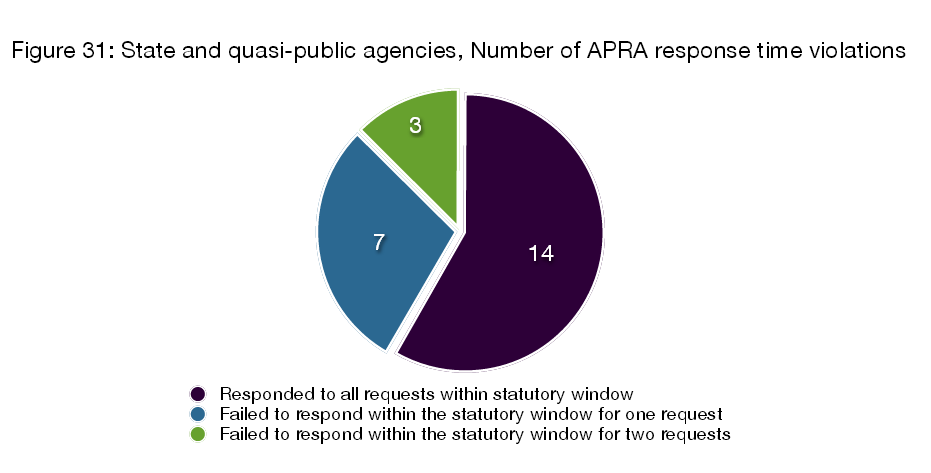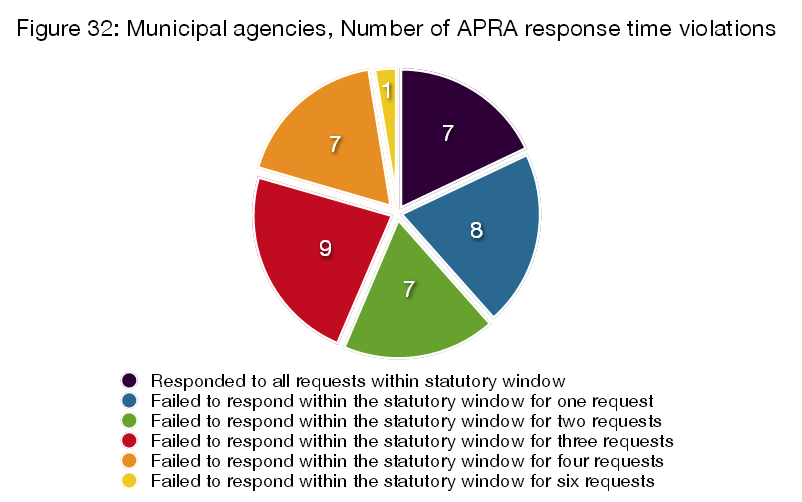After months of research and dozens of requests, we’re proud to announce that the RI APRA Audit if officially live. Read the press release below, and check out the full audit here.
An audit of the 2012 amendments to the state’s Access to Public Records Act (APRA) shows that a number of state agencies and municipal departments, in particular the police, apparently are in violation of the changes to the law. In addition, enforcement of parts of the law appears to be weak or nonexistent.
The audit was conducted by two organizations dedicated to transparency in government: ACCESS/RI, a coalition of local non-profit organizations and First Amendment advocates, and MuckRock, a collaborative news site and public records request platform. A piece of the audit on the certification by the Office of the Attorney General of employees in the state and local agencies to handle open records requests was released in late July.
The audit released today found:
-
Dozens of agencies violated the 10 business day response window when asked for routine documents such as employee contracts and arrest reports.
-
More than half of police departments (20 out of 39) failed to provide basic arrest information within 48 hours as required under the 2012 APRA revisions.
-
More than a third of government agencies surveyed failed to meet APRA training and certification requirements for 2014.
-
Most agencies have adopted written APRA procedures, but nearly a quarter have not posted these procedures online as required by the statute.

All 39 cities and towns and 24 state agencies, representing a cross section of public and quasi-public agencies, were audited. The audit contains summaries for each along with graphs and charts, making it easy to find out how your local community or a state agency fared.
The audit also includes a number of recommendations to ensure compliance with the law. They include:
-
The Attorney General’s office must enhance its oversight by posting publicly a list of those public bodies that do not comply with the certification requirement in the first month of the year.
-
There should be a strong presumption that any public body without APRA-certified employees is deemed to have engaged in a knowing and willful violation of the law. Such a finding by the Superior Court is necessary for a fine of up to $2,000 to be imposed against the public body or agency.
-
The Attorney General’s office should follow up with those agencies that have not complied with the training and certification requirement by the first of the year and seek ways to address the compliance standard.
-
The Attorney General’s office should collaborate with the police departments to develop a legally adequate police log form.
-
The Office of the Attorney General which is responsible for enforcing APRA must become more aggressive in seeking penalties against violators.
-
The leaders responsible for the agencies identified in this audit that have failed to adopt written APRA procedures ought to ensure that such procedures are developed immediately.
-
The General Assembly should consider further reforms to APRA to strengthen compliance, such as creating penalties for non-compliance that would accrue on a daily basis and otherwise increasing the fines against violators, and authorizing courts to award compensatory and punitive damages to successful plaintiffs in public records cases.
-
The results of the audit also raise the question of the effectiveness of Rhode Island’s current enforcement protocol, which relies on the Office of the Attorney General to enforce the APRA against fellow state agencies. A highly successful alternative system in our neighboring state of Connecticut instead charges an independent commission, the Connecticut Freedom of Information Commission, with overseeing public records disputes.

Access/RI President Linda Lotridge Levin said, “A culture of indifference — if not outright hostility — to the public’s right to know is a key reason for the less-than-stellar results detailed in this audit. Too many agencies appear to consider complying with open records requests a burden rather than what it actually is and should be — a core
mission of their agency. Hence, it is incumbent on state agency directors, mayors, town clerks, police chiefs, school district superintendents and the heads of all other public bodies to make clear to their personnel that compliance with APRA is a priority and to reverse a deep-rooted attitude of secrecy that seems embedded in too many agencies.”
You can see the requests for yourself on the Access Profile page, and again, the audit can be found here.
Image via Providence Journal




